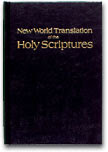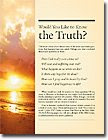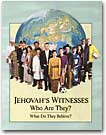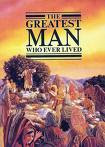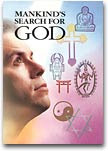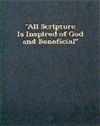"Jehovah God proceeded to form the man out of dust from the ground and to blow into his nostrils the breath of life, and the man came to be a living soul."-Genesis 2:7
Very few religions do not believe that there is no life after death. It is certainly plausible, since no scientific machine can measure or detect something like that. It has to be taken by faith. And surely, Jehovah God can make a soul--if we actually have one--continue to live after death. He says, "Look! All the souls--to me they belong. As the soul of the father so likewise the soul of the son--to me they belong." (Ezekiel 18:4) If all the souls belong to Jehovah, then it is undoubtedly true that He can cause anything to happen.
2 However, we must first ask some questions: What is the soul? Are the soul and spirit the same? Does the Bible teach that a person lives on after death? What is the final end? These question are very important if we want to answer the first, Is there life after death?
What Is the Soul?
3 Many teach that the soul is an immaterial life that lives inside our body with us. It is completely identical to us--because it is us--and it retains all of our memories, personality traits, and emotions that we possessed during our real life. Most people believe that when we die, our soul goes to heaven to live with God.
4 Of course, we want to see what the Bible says on this matter. According to the Bible, what is the soul? Well, the Hebrew word rendered soul is Ne'phesh and the Greek word rendered soul is Psykhe'. Both of these words carry the exact same thought. As used in the Scriptures, they both show the word soul to be a person, animal, or the life that a creature lives. Furthermore, the way that English term is used today refers to something immaterial, invisible, and immortal. In contrast, the original language words always refer to that which is material, visible, and mortal.
5 With these type of definitions applied to these words, it may surprise many to learn the truth about the soul. This is the truth: You, as a living, breathing person, are a soul. The Bible says of the first man, Adam, "Jehovah God proceeded to form the man out of dust from the ground and to blow into his nostrils the breath of life, and the man came to be a living soul." (Genesis 2:7) It was not until the man received the breath of live that he became a soul, not received a soul. The Bible in other places says that the soul eats and has blood.-Leviticus 7:18; Jeremiah 2:34
6 In regard to animals the Bible says, "Let the waters swarm forth a swarm of living souls and let flying creatures fly over the earth upon the face of the expanse of the heavens...let the earth put forth living souls according to their kinds, domestic animal and moving animal and wild beast of the earth according to its kind." (Genesis 1:20, 24) Yes, we see that even animals are living souls. The same word is used at Genesis 1:20, 24, ne'phesh, for animals as that used in regard as humans. The soul of the human and the soul of the animal are no different.
Are the Soul and Spirit the Same?
7 While the Hebrew and Greek words for soul are ne'phesh and psykhe', the words for spirit in Hebrew and Greek are different. The word for spirit in Hebrew is ru'ach and the Greek word is pneu'ma. Basically, both these words mean breath, wind, or spirit.
8 What the Bible teaches about the word "spirit" is essential to consider when answering the above question. For example, Psalm 104:29 says, "If you take away their spirit, they expire, and back to their dust they go." Jesus' half brother, James, says, "As the body without spirit is dead, so also faith without works is dead." (James 2:26) So the spirit is essential to life. Without it, we would not be alive.
9 Go back to the first man, Adam, again. The original Greek word for spirit, ru'ach, is used in regard to him. Remember, the Bible says, "God proceeded to...blow into his nostrils the breath [ru'ach] of life." What was the effect? Adam "came to be a living soul." (Genesis 2:7) The man did not receive the soul of life but the spirit of life. Without the spirit going into him, the soul, the life, the man, would not have existed. The man needs that spirit of life to live--to be a soul. That is why the Bible says, "Do not put your trust...in the son[s] of earthling man...his spirit goes out, he goes back to his ground; in that day his thoughts do perish." (Psalm 146:3-4) Spirit leaves the man and the soul, or man, dies--he goes back to the dust.
Does the Bible Teach That A Person Lives On After Death
10 So, if the spirit goes out, does that mean that the man lives on after death? The Bible does say: "Then the dust returns to the earth just as it happened to be and the spirit itself returns to the true God who gave it." (Ecclesiastes 12:7) If the soul does not return to heaven, does that mean that the spirit does?
11 First, we need to reason on this. When Jehovah blew into Adam the 'spirit of life' and he became a living soul, did God breath into Adam a particular spirit made specifically for that man, a spirit that contained his personality traits? Because if the spirit that goes back to God is an individual with all the memories, personality traits, and emotional responses that the living soul had, then God would have to give each person an individual spirit that contained a predisposed makeup.
12 Second, look back at Psalm 146:3-4. When the living soul dies and the spirit returns to God the verse says that "his thoughts do perish." The spirit has no thoughts--it is only a force that keeps our heart beating, our brain working, and our body responding. So when Ecclesiastes 12:7 says that the spirit returns to the God who gave it, it means that God remembers us.
13 What may surprise many is what the Bible teaches about the eventuality of man. Wise King Solomon was inspired by Jehovah to write something. He said, "There is an eventuality as respects the sons of mankind and an eventuality as respects the beast, and they have the same eventuality. As the one dies, so the other dies; and they all have but one spirit, so that there is no superiority of the man over the beast, for everything is vanity. All are going to one place. They have all come to be from the dust, and they are all returning to the dust."-Ecclesiastes 3:19-20
14 The spirit of man suffers the same fate as the spirit of the beast. They each just go away. The man, in this respect, is no different then the animal. We all know what happens to an animal when it dies. It no longer exist. Think about this. If a dog tried to battle a lion, the lion would win out. The lion is better then a dog. However, if the lion was dead, the dog is better off. (Ecclesiastes 9:4) Humans are no different then that dog. Even though a lion would win in battle against a human, a dead lion is not better then a live human. In the same way, a dead human is no better off then a live dog--or a dead dog. They are both equally dead.
15 The Bible also teaches this truth: the soul dies. To the prophet Ezekiel Jehovah said, "The soul that is sinning--it itself will die." (Ezekiel 18:4, 20) To reiterate that point, when we look back to the first man and his eventual fate, we see this point clearly. After Adam sinned he was told, "In the sweat of your face you will eat bread until you return to the ground, for out of it you were taken. For dust you are and to dust you will return." (Genesis 3:19) Jehovah did not tell Adam that he would go to Heaven or Hell when he died but that he would go back to the same state that he was in before. He would die and turn back to dust.
16 The real clincher of the matter is this extremely clear Scripture. Ecclesiastes 9:5 says, "For the living are conscious that they will die; but as for the dead, they are conscious of nothing at all." So neither the soul nor the spirit continue after death. We, as a soul, cease to exist and the spirit, or life force, goes out, causing our thoughts to perish. We are not immortal. That is why the Bible says that Jesus Christ is "the one alone"--in relation to humans--"having immortality." (1 Timothy 6:16) That is why we need to feel the same way as the Psalmist David: "Into your hand I entrust my spirit."-Psalm 31:5
What Is the Final End
17 When asked about the resurrection by people who did not believe in it, Jesus said, "As regards the resurrection of the dead, did you not read what was spoken to you by God, saying, 'I am the God of Abraham and the God of Isaac and the God of Jacob’? He is the God, not of the dead, but of the living.'" (Matthew 22:31-32) Some might point to this verse and say, "See! Abraham, Isaac, and Jacob are not dead! They must be in heaven with God! All of your arguments are useless!" But the Gospel writer Luke sheds light on that. He continued Jesus' words: "He is a God, not of the dead, but of the living, for they are all living to him." (Luke 20:38) That brings us to our concluding point.
18 Death is going to be done away with. Paul, after quoting Isaiah 25:8 saying "The saying will take place that is written: 'Death is swallowed up forever', then turns and quotes Hosea 13:14, taunting death because it cannot hurt man anymore. (1 Corinthians 15:54-55; Revelation 21:3-4) Yes, one day death will be done away with! Yet, there is more! Those who have died will return to life. Jesus taught this. He said, "Do not marvel at this, because the hour is coming in which all those in the memorial tombs will hear his voice and come out." (John 5:28-29) Paul and John also both taught a resurrection.
19 Paul wrote, "I have hope toward God, which hope these men themselves also entertain, that there is going to be a resurrection of both the righteous and the unrighteous." (Acts 24:15) John said, "And I saw the dead, the great and the small, standing before the throne, and scrolls were opened...and the sea gave up those dead in it, and death and Hades gave up those dead in them." (Revelation 20:12-13) Yes, millions and perhaps billions of people who have lived and died will return from the grave and have a hope of living forever on a paradise earth.-Psalm 37:11, 29
20 We can thank Jehovah for his wonderful provision. He does not torment people in hell for eternity and he doesn't rip us from the people we love forever. He also doesn't keep us in the dark on this subject. When we say, "Jehovah, into your hands we entrust our spirits" we can be confident that He knows exactly what to do with them. If you would like to learn what the Bible says further on this subject and many other subjects, write to the appropriate address or send a request by electronic correspondence. Any Jehovah's Witness in your area would be happy to help you!
Study Questions
1, 2. (A) Why is it plausible that something could live on after death? (B) What questions will be considered in this article?
3. What is the basic teaching about the soul?
4. (A) What are the original language words that are translated into soul? (B) What does the English translation of these words bring to mind, but what connotation do they actually carry?
5. What is the truth about the soul and what Bible Scriptures point this out?
6. Is the original language word translated "soul" in regard to animals the same as the word translated "soul" for humans? Explain.
7. What are the original language words for "spirit" and what basic meanings could they have?
8. Why is spirit essential for life?
9. (A) How do the circumstances surrounding Adam help defend the notion of the spirit being the life-force? (B) How is Psalm 146:3-4 help to clear things up?
10. What question does Ecclesiastes 12:7 raise?
11. What question does the idea of a conscious spirit bring up and how can this be reasoned upon?
12. What further way does Psalm 146:3-4 help us to see that neither the soul nor the spirit is conscious?
13, 14. (A) What eventuality befalls both man and animal and what happens to each when this occurs? (B) What illustration from the Bible can be used to clarify and strengthen this point?
15. (A) Does the soul die? Explain. (B) What did Jehovah promise would happen to Adam after he sinned and where is Adam now?
16. Does the Bible say that we are immortal? Is anyone immortal?
17. (A) What did Jesus claim about Jehovah in regard to Abraham, Isaac, and Jacob? (B) How does Luke clarify what Jesus actually meant?
18, 19. (A) What will one day happen to death, 'the last enemy'? (B) What words of Jesus, Paul, and John show that death is not the end?
20. Why can we be thankful to Jehovah and what can we be confident of?



